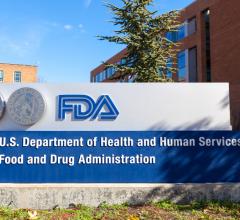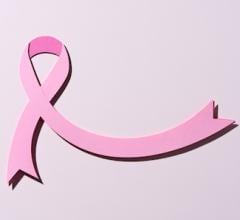
Karla Kerlikowske, MD, UCSF professor of Medicine and Epidemiology & Biostatistics
February 14, 2023 — Breast cancer is now the leading cause of global cancer incidence among women but determining who will develop breast cancer is still a challenge for the medical community. A new tool, developed by researchers from UCSF and several other medical institutions, helps to calculate risk for those who may develop advanced breast cancer that goes undiagnosed despite regular screenings.
Karla Kerlikowske, MD, UCSF professor of medicine and epidemiology & biostatistics, has been examining risk factors for advanced breast cancer for more than 15 years. She co-leads a consortium of clinicians, researchers and biostatisticians who have developed a risk calculator for advanced breast cancer.
The Breast Cancer Surveillance Consortium (BCSC) Advanced Breast Cancer Risk Calculator is an interactive tool designed by BCSC scientists to estimate six-year cumulative risk of developing advanced breast cancer based on annual mammography or biennial (every two years) mammography. The calculator is available for clinicians on the web or as iPhone and Android apps.
Advanced breast cancer is defined as prognostic pathologic stage II or higher. Advanced breast cancers are tumors that are large and/or have spread to lymph nodes or have other characteristics associated with poorer prognosis such as being high grade and estrogen receptor negative. They require surgery and systemic treatment, and detecting breast cancers through screening before they become advanced may avert deaths from breast cancer.
The breast cancer risk calculator includes factors such as breast density, age, race and ethnicity, family history in a first-degree relative, previous breast biopsies, body mass index, and menopausal status. The calculator provides estimates of very low, low, average, intermediate and high advanced cancer risk to inform decisions about screening frequency and supplemental imaging.
“The BCSC Advanced Breast Cancer Risk Calculator is easy for physicians to use in clinic on the iPhone or Android smart phone and is particularly informative for women with dense breasts and obesity where annual screening may be indicated,” said Kerlikowske.
One of the strongest risk factors for advanced breast cancer, apart from having the BRCA gene or a mother or sister with breast cancer, is breast density. Dense breasts have a higher proportion of connective and milk duct tissue. Where the breast is dense, a mammogram of the tissue appears cloudy or opaque. In women with dense breasts, 50% or more of breast tissue appears opaque. Women whose breast density is 75% or more have roughly three to four times the risk of being diagnosed with breast cancer within five years compared with women whose breast density is 25% or less, according to Kerlikowske's research.
Among the reasons breast density may give rise to advanced breast cancer is that standard screening mammograms have less accuracy with dense breasts than non-dense breasts, making it more challenging to accurately detect the cancer in its earliest stages. On a cellular level, the abundant connective tissue and collagen protein found in normal, dense breast tissue resembles the abnormal proliferation of connective tissue that occurs in the vicinity of cells that have undergone early steps toward becoming cancerous. Certain types of cell signaling between the duct cells and connective tissue may play a role in cancer susceptibility.
Another strong risk factor for advanced breast cancer is being overweight or obese. More than 50% of women in the U.S. are overweight or obese. Encouraging women to maintain ideal body weight could decrease their chance of advanced breast cancer.
To share clinical and research insights for breast density and cancer prediction, Kerlikowske and John Shepherd, PhD, of the University of Hawai‘i, are hosting the 10th International Breast Density & Cancer Risk Assessment Workshop in Hawai’i at the University of Hawai‘i Cancer Center on June 7-9, 2023.
Related Breast Density Content:
Creating Patient Equity: A Breast Density Legislative Update
AI Provides Accurate Breast Density Classification
VIDEO: The Impact of Breast Density Technology and Legislation
VIDEO: Personalized Breast Screening and Breast Density
VIDEO: Breast Cancer Awareness - Highlights of the NCoBC 2016 Conference
Fake News: Having Dense Breast Tissue is No Big Deal
The Manic World of Social Media and Breast Cancer: Gratitude and Grief


 February 05, 2026
February 05, 2026 









